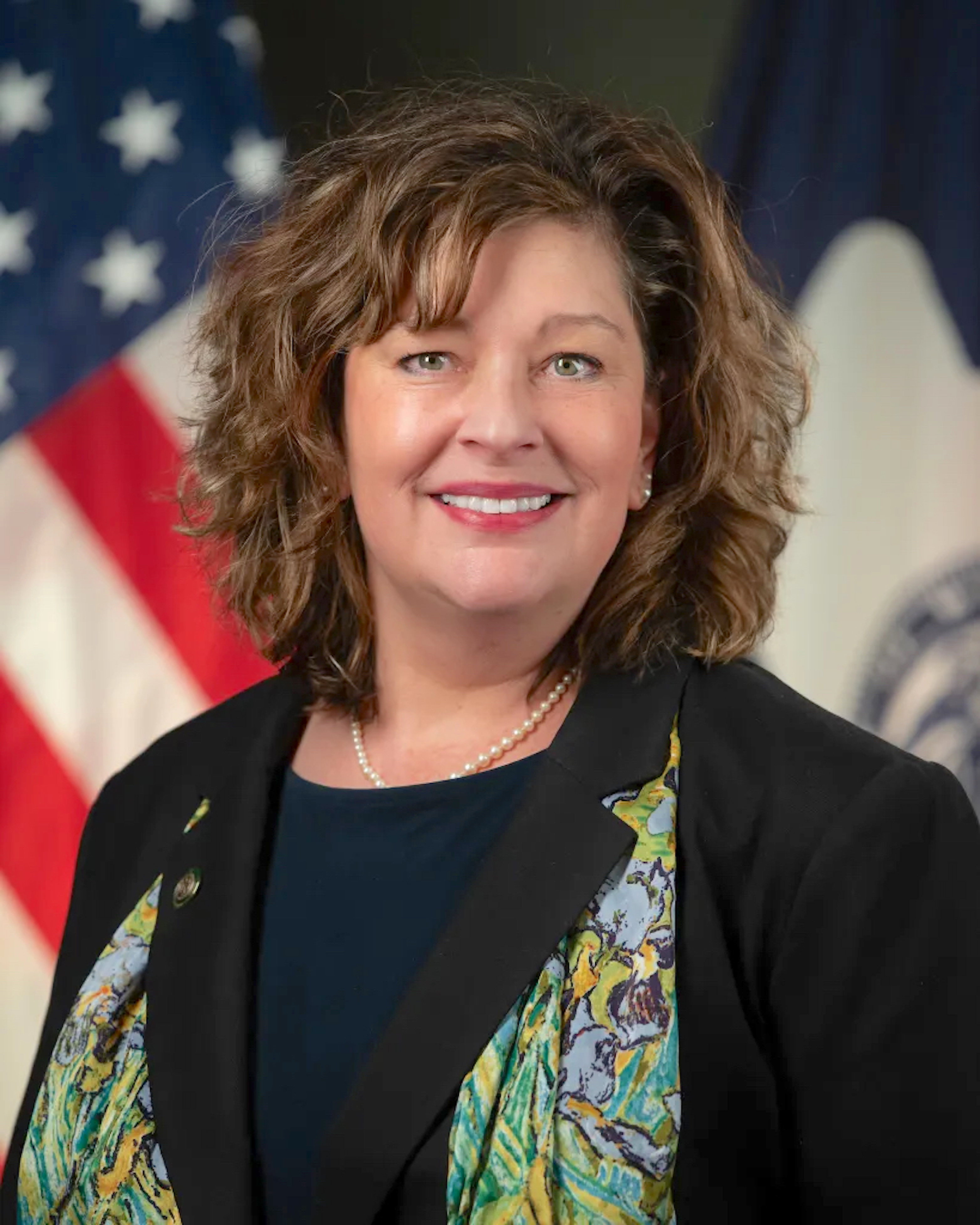Wyoming legislators to review public records, open meetings laws

Wyoming Public Records Ombudsman Darlena Potter. (Wyoming Governor Mark Gordon’s office)
FROM WYOFILE:
Complaints about fees and timeliness led a legislative committee to prioritize the issue this off-season.
Wyoming lawmakers are set to discuss the state’s public record and open meetings laws next week in Lander. What changes, if any, the Joint Corporations, Elections and Political Subdivisions Committee may seek remains to be seen, but legislators made the subject an off-season priority due to a variety of concerns.
“Complaints have arisen in a few areas,” according to a letter sent by the Joint Corporations Committee chairmen to the Legislature’s Management Council in March.
Those concerns related to the effectiveness of the state’s ombudsman program, the costs government entities impose on records requesters and the “ignorance and disregard of public records and public meetings statutes by public officials,” the letter states.
“I know we can tackle the fee question and the timeliness and maybe some small changes. A bigger rewrite is a big lift,” Senate Corporations Committee Chairman Cale Case, R-Lander, told WyoFile.
“But I think we should hear what’s wrong with our open meetings, public records, all that stuff,” he said.
How Wyoming compares
Ahead of the meeting, the Legislative Service Office prepared a memo comparing Wyoming’s laws with neighboring states. There are multiple notable differences.
For one, Wyoming’s definition of public records differs from most other states, according to the memo, in the way it specifies that public records only include information in physical form.
“In contrast, Montana, Nebraska, South Dakota and Utah define records as public regardless of format,” the memo states.
The Equality State also requires public records to relate to official functions or public business, whereas most neighboring states define it more broadly to encompass any document belonging to, used by, or maintained by a public entity.
While Wyoming does not specify fee amounts for copies or staff time, according to the memo, other states have established fixed rates. That includes Colorado, which stipulates that the cost of copying a page may not exceed 25 cents, and the hourly rate for staff time is set at $30 and is adjusted every five years for inflation. Colorado and other neighboring states also offer a certain number of copies or staff time hours free of charge before fees apply.
“Some states, including Colorado, Idaho, South Dakota and Utah, provide fee waivers if the requester can demonstrate that releasing the records is of public interest, is not for personal gain, or the requester experiences financial hardship,” the memo states.
Wyoming is one of four states in the country to have specific exemptions for lawmakers, according to the National Conference of State Legislatures. Meaning, that unlike city council or school board members across the state, legislators are largely not subject to public records requests.
The Legislature passed such an exemption in 2006, and then doubled down and voted to override Gov. Dave Freudenthal’s veto of the bill.
Ombudsman
Wyoming’s public records ombudsman also sets it apart from most of its neighbors.
For about three years, it’s been Darlena Potter’s job to educate public officials about what’s required of them under the law and to help resolve issues regarding records requests of state and local government agencies.
Complaints can be submitted to the ombudsman, who can then mediate disputes, prescribe timelines for the release of records and waive fees charged by a governmental entity.
The Legislature created the position in 2019 as part of a broader public records reform effort. The changes also created a 30-day deadline for the release of most records and required governmental entities to designate a public records person and post their contact information on the Department of Administration and Information’s website.
What the 2019 law did not do was authorize the ombudsman to enforce Wyoming’s public records laws. And as a result, government entities don’t always comply and disputes continue to land in court.
As Potter told WyoFile last month, she’s optimistic about lawmakers’ renewed interest in her role and improving public record statutes. She’s scheduled to address the committee at next week’s meeting.
WyoFile is an independent nonprofit news organization focused on Wyoming people, places and policy.
This story was posted on May 1, 2025.






